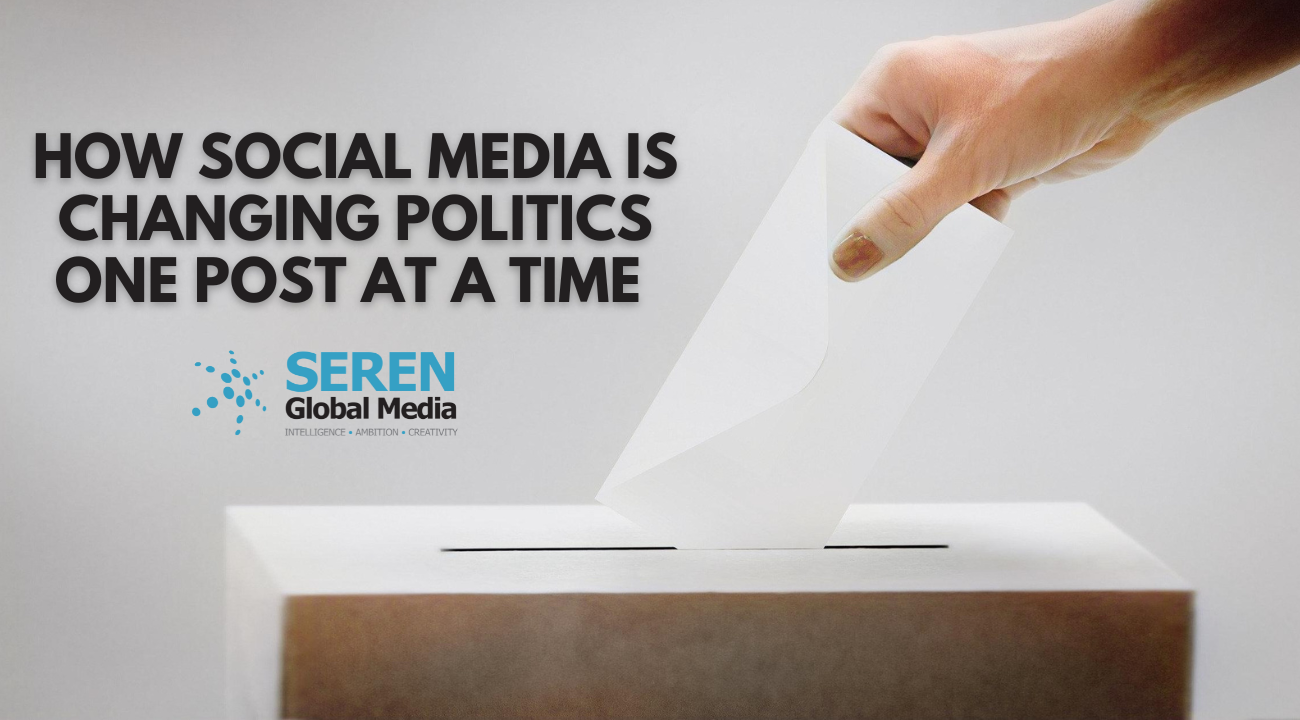How social media is changing politics one post at a time

Social media has steadily become a cornerstone of political campaigns and public discourse, but this year, its impact on UK elections has been more pronounced than ever before. From shaping public opinion to mobilising voters, platforms like Twitter, Facebook, Instagram and TikTok have transformed the political landscape in a significant way.
Engaging voters like never before
Social media has enabled politicians to engage directly with voters, bypassing traditional media filters. This year, candidates have leveraged platforms like Twitter and Facebook to share their messages, policies, and personal stories. The ability to post unfiltered content allows politicians to present themselves authentically and respond directly to voter concerns.
Labour Party leader Keir Starmer used Instagram Stories to provide a day-in-the-life look at his campaign trail, sharing behind-the-scenes moments and engaging with followers through Q&A sessions. This strategy helped humanise his campaign and connect with younger voters, bridging the gap that often exists between politicians and the public.
TikTok, Trends & Targeting the younger demographic
TikTok has emerged as a powerful platform for political communication, particularly among younger demographics. Politicians have embraced the app to create short, engaging videos that effectively showcase their policies, providing an alternative to lengthy, often wordy manifestos.
The Conservative Party launched a TikTok campaign featuring viral challenges and humorous content to attract younger voters. Videos of Prime Minister Rishi Sunak participating in trending challenges garnered millions of views, increasing his visibility among a demographic that traditionally shows lower political engagement.
Targeted Advertising & Tailored Messages
Social media platforms, such as Facebook, now offer sophisticated targeting capabilities, allowing political campaigns to tailor their messages to specific voter segments. Data analytics enable campaigns to identify and target voters based on demographics, interests, and past social media behaviours, often revealing insights into their voting habits as well.
The Liberal Democrats ran a series of targeted Facebook ads focusing on environmental policies, specifically aimed at environmentally conscious voters, as well as targeting voters in key conservative constituencies. This strategic approach helped them increase support in areas where environmental issues are a top concern, while also tactfully targeting vulnerable Conservative constituencies that could act as tiebreakers.
Rapid Response in a potential crisis
The fast-paced nature of social media requires campaigns to be agile and responsive. Candidates can quickly address controversies, correct misinformation, and adapt their strategies based on real-time feedback.
During a televised debate, misinformation about the Green Party’s stance on immigration spread rapidly on social media. The party’s leader, Carla Denyer, used Twitter to promptly debunk the false claims and clarify their position, effectively mitigating potential damage to their campaign.
As social media changes, much like government and policy, we at Seren Global Media remain strong in our expertise and commitment to guiding clients through strategies. For assistance with your business’s social media strategy, contact us today.
Archive
2025 (11)
June (1)
May (2)
April (2)
March (2)
February (2)
January (2)
2024 (21)
December (2)
November (1)
October (1)
September (2)
August (1)
July (2)
June (1)
May (2)
April (3)
March (2)
February (1)
January (3)
2023 (27)
December (1)
November (3)
October (3)
September (2)
August (4)
July (2)
June (3)
May (1)
April (2)
March (3)
February (3)
2022 (21)
December (3)
November (1)
October (2)
September (3)
August (1)
July (2)
June (1)
May (1)
April (1)
March (2)
February (1)
January (3)
2021 (25)
December (2)
November (1)
October (3)
September (2)
August (2)
July (2)
June (3)
May (2)
April (2)
March (2)
February (2)
January (2)
2020 (20)
December (2)
November (3)
October (1)
September (2)
August (1)
July (2)
June (1)
April (2)
March (2)
February (2)
January (2)
2019 (22)
December (2)
November (2)
October (2)
September (3)
August (3)
July (2)
June (2)
May (2)
April (3)
January (1)
Latest News/Blog
Has influencer marketing killed good PR?
20 June 2025
Why Press Relations are key for your business in 2025
29 April 2025